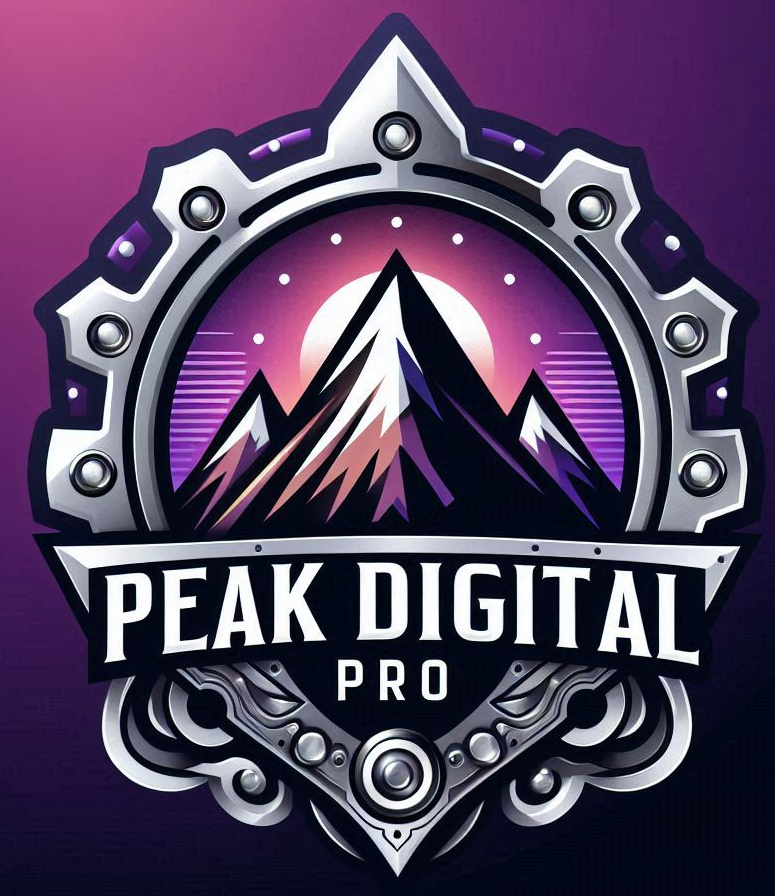Content Marketing Calendar Guide for Business Owners
Planning your content can feel like juggling a dozen balls while running a business. Most owners just wing it and hope for the best, but that approach leaves money on the table. Here is a wild fact— businesses using content marketing calendars are 3 times more likely to see better marketing results and stay consistent with their messaging . This single tool can turn scattered ideas into real, measurable growth.
Table of Contents
Quick Summary
| Takeaway | Explanation |
|---|---|
| Create a content marketing calendar. | A structured calendar organizes content efforts, ensuring consistency and alignment with business goals. |
| Define clear marketing objectives. | Set measurable goals like increasing brand awareness or generating leads to guide your content creation process. |
| Use effective digital tools. | Utilize platforms like Google Sheets or Trello to streamline content planning and improve organizational efficiency. |
| Maintain a consistent brand voice. | Develop and adhere to writing and style guidelines to ensure all content reflects your brand identity. |
| Regularly review and optimize content strategies. | Continuously analyze performance and adapt your content calendar based on audience feedback and changing trends. |
Why Every Business Needs a Content Marketing Calendar
Content marketing requires strategic planning and precise execution. Without a structured approach, businesses risk creating inconsistent, ineffective content that fails to engage their target audience. A content marketing calendar transforms random content creation into a powerful, organized strategy that drives meaningful business results.
The Strategic Foundation of Content Planning
A content marketing calendar is more than just a scheduling tool. Learn about strategic content approaches that can elevate your marketing efforts. According to Mailchimp , content calendars help businesses streamline production by providing a clear overview of upcoming content, deadlines, and team responsibilities. This systematic approach ensures that every piece of content serves a specific purpose aligned with broader marketing objectives.
Businesses without a content calendar often experience common challenges: missed publication dates, inconsistent messaging, duplicate content, and a lack of strategic direction. By implementing a structured calendar, organizations can overcome these obstacles and create a cohesive content strategy that resonates with their target audience.
Alignment and Efficiency in Content Creation
LinkedIn research highlights that content calendars enable both internal and external teams to prepare engaging content without last-minute scrambling. The benefits extend far beyond mere scheduling:
- Consistent Brand Messaging : Ensure your content maintains a uniform voice and narrative across all platforms
- Strategic Content Planning : Align content with key business events, product launches, and industry trends
- Resource Optimization : Allocate marketing resources more effectively by planning content in advance
A well-designed content marketing calendar acts as a strategic roadmap. It allows businesses to anticipate content needs, balance different content types, and maintain a steady stream of valuable information for their audience. By mapping out topics, publication dates, and responsible team members, businesses can create a more intentional and impactful content strategy that drives engagement and supports overall marketing goals.

Ultimately, a content marketing calendar transforms content from a sporadic activity into a structured, purposeful approach that can significantly enhance a business’s digital marketing effectiveness.
Steps to Build Your Content Marketing Calendar
Creating an effective content marketing calendar requires a systematic approach that transforms your marketing strategy from random efforts to purposeful execution. Explore advanced content marketing techniques to enhance your planning process and maximize your marketing potential.
Defining Your Content Marketing Goals
Before diving into calendar creation, businesses must establish clear and measurable objectives. According to Adobe’s guide , setting specific goals helps determine the type of content you’ll produce and how frequently you’ll publish. These goals might include increasing brand awareness, generating leads, improving customer engagement, or driving website traffic.
Start by identifying your target audience and understanding their preferences, pain points, and information needs. This foundational research will guide your content themes and topics. Consider conducting customer surveys, analyzing existing content performance, and reviewing industry trends to inform your strategy.
Developing a Comprehensive Content Framework
Wikipedia’s entry on editorial calendars highlights the importance of controlling content publication across different media platforms. When building your content marketing calendar, consider these key components:
- Content Types : Diversify your content with blog posts, videos, infographics, podcasts, and social media updates
- Publishing Frequency : Establish a realistic and consistent schedule that matches your team’s capacity
- Content Themes : Develop a mix of evergreen content and timely, trend-responsive pieces
Decide on your publishing cadence based on your resources and audience engagement. Some businesses might publish weekly blog posts, while others might focus on monthly in-depth guides. The key is maintaining consistency and quality.
Utilize tools like spreadsheets or dedicated content management platforms to track your content pipeline. Include columns for content title, type, target audience, publication date, assigned team member, and status. This structured approach ensures nothing falls through the cracks and helps your team stay organized and accountable.

Remember that a content marketing calendar is a living document. Regularly review and adjust your strategy based on performance metrics, audience feedback, and changing business objectives. Flexibility and continuous improvement are crucial to maintaining an effective content marketing approach.
Tools and Templates for Easy Content Planning
Creating an effective content marketing calendar requires the right tools and templates that simplify planning and enhance organizational efficiency. Discover strategic content management approaches to elevate your content planning process.
Digital Content Calendar Solutions
Modern businesses have access to a wide range of digital tools designed to streamline content planning. According to the Digital Marketing Institute , comprehensive content calendar templates should include key sections such as content type, publication date, target audience, and promotional channels. These tools help businesses maintain a structured approach to content creation and distribution.
Several powerful platforms offer unique features for content planning:
To help you evaluate which digital content calendar tool best fits your business needs, here’s a comparison of the key features and benefits of popular platforms mentioned in this guide:
| Tool | Type | Key Features | Best For |
|---|---|---|---|
| Google Sheets | Spreadsheet (Free) | Collaborative, flexible, easy to use | Small businesses, basic needs |
| Trello | Board-based project mgmt | Visual boards, drag-and-drop tasks, checklists | Visual planners, teams |
| Asana | Project management | Workflow automation, calendar view, team collaboration | Team projects, workflow mgmt |
| CoSchedule | Marketing calendar suite | Advanced scheduling, analytics, integrations | Robust strategies, marketers |
- Google Sheets : A free, collaborative spreadsheet tool perfect for basic content calendar management
- Trello : Offers visual, board-based project management for tracking content progress
- Asana : Provides robust team collaboration and content workflow tracking
- CoSchedule : Specialized marketing calendar software with advanced content planning features
Template Strategies for Effective Planning
Aha! research highlights the importance of using structured templates to coordinate marketing initiatives. The ideal content calendar template should include:
Here’s a summary checklist of essential elements to include in your content marketing calendar template, ensuring thorough and effective planning:
| Element | Purpose | Included in Guide? |
|---|---|---|
| Date/Deadline | Tracks when content needs to be published | Yes |
| Content Type | Differentiates blogs, videos, social, etc. | Yes |
| Assigned Team Member | Clarifies ownership and responsibility | Yes |
| Target Audience | Ensures alignment with audience needs | Yes |
| Publication Status | Monitors progress (draft, scheduled, live) | Yes |
| Promotional Channel | Notes where content will be distributed | Yes |
| Key Performance Indicators | Connects content to measurable objectives | Yes |
- Comprehensive date tracking
- Content type categorization
- Assigned team members
- Publication status
- Key performance indicators
Office Timeline suggests using Gantt chart-style templates to visualize content planning over extended periods. This approach allows businesses to see content distribution across weeks or months, helping identify potential gaps or overloaded periods in their content strategy.
When selecting a content planning tool, consider your specific business needs. Small businesses might prefer simple spreadsheet solutions, while larger organizations may require more complex project management platforms. The key is finding a tool that integrates seamlessly with your existing workflow and provides the flexibility to adapt as your content strategy evolves.
Remember that no single tool is perfect for every business. Experiment with different templates and platforms, and don’t hesitate to customize existing solutions to match your unique content marketing requirements. Regular review and adaptation of your content planning approach will ensure continued effectiveness and alignment with your business goals.
Tips for Success: Content Calendar Best Practices
Successful content marketing requires more than just creating a calendar. Learn advanced content strategy techniques to elevate your marketing approach and maximize your content’s potential.
Strategic Content Planning and Execution
A robust content calendar demands continuous refinement and strategic thinking. According to research from the National Institutes of Health , systematic content planning significantly improves audience engagement and retention. This means your calendar should be more than a static document – it needs to be a dynamic tool that adapts to changing business objectives and audience needs.
Key considerations for strategic content planning include:
- Audience Insights : Regularly update your understanding of target audience preferences
- Flexibility : Build room for spontaneous content and trending topics
- Performance Tracking : Integrate measurable objectives for each content piece
Maintaining Content Quality and Consistency
Consistency is the cornerstone of effective content marketing. Your content calendar should enforce high standards while providing the framework for reliable content production. This means establishing clear guidelines for:
- Writing style and tone
- Brand voice and messaging
- Visual design and formatting
- Review and approval processes
Create a content style guide that team members can reference. This document ensures that regardless of who creates the content, it maintains a uniform quality and aligns with your brand’s communication strategy.
Continuous Improvement and Optimization
Treat your content calendar as a living document. Regularly analyze performance metrics, gather team feedback, and be prepared to pivot your strategy. Schedule quarterly reviews to assess what’s working, what needs improvement, and how your content can better serve your business goals.
Consider implementing a feedback loop where team members can suggest improvements, track content performance, and share insights. This collaborative approach transforms your content calendar from a simple scheduling tool into a strategic asset that drives continuous marketing innovation.
Remember that a great content calendar is not about perfection but about creating a flexible, responsive system that helps your business communicate effectively with its audience. Stay agile, be willing to experiment, and always focus on delivering value to your readers.
Frequently Asked Questions
What is a content marketing calendar and why do I need one?
A content marketing calendar is a strategic tool that organizes your content creation and publication efforts, ensuring consistency, aligned messaging with business goals, and improved marketing results.
How do I define effective content marketing goals?
Effective content marketing goals should be clear, measurable, and aligned with your overall business objectives. Common goals include increasing brand awareness, generating leads, improving customer engagement, or driving website traffic.
What tools are available for creating a content marketing calendar?
There are various digital tools for creating a content marketing calendar, including Google Sheets for basic planning, Trello and Asana for project management, and CoSchedule for more robust marketing strategies.
What are the best practices for maintaining a content marketing calendar?
Best practices include regularly updating audience insights, being flexible with spontaneous content, ensuring high-quality standards, and conducting periodic reviews to optimize and adjust your content strategy based on performance metrics.
Ready to Turn Your Content Plans Into Real Results?
You already know the stress of trying to maintain a consistent content strategy without the right system in place. Missed deadlines, scattered ideas, and struggling to keep your message aligned can leave your brand feeling lost in the crowd. The Content Marketing Calendar Guide for Business Owners showed you how structure transforms chaos into growth. Now, imagine what you could accomplish with the support of expert digital marketers who take this planning to the next level.

Let Peak Digital Pro help you build a content marketing engine that delivers:
- Consistent brand messaging across every channel
- Smart, data-driven content that attracts and converts
- Seamless integration with advanced SEO and advertising strategies
Stop guessing and start growing with proven content calendars and targeted marketing solutions from Peak Digital Pro. Reach out to us today and claim your competitive edge—your customers are looking for you right now. Visit our Colorado Springs digital marketing experts and discover how you can own your market with powerful content and strategic execution.
Recommended
-
[
Content Marketing Strategies for U.S. and Colorado Businesses 2025
]( https://peakdigital.pro/2025/06/30/content-marketing-strategies-us-colorado-businesses-2025 )
-
[
Video Marketing Strategies for US Business Owners 2025
]( https://peakdigital.pro/2025/07/23/video-marketing-strategies-for-us-business-owners-2025 )
-
[
Content Marketing ROI in 2025: Guide for U.S. Business Owners
]( https://peakdigital.pro/2025/07/06/content-marketing-roi-guide-2025-us-colorado-business )
-
[
Digital Marketing Basics 2025: Guide for US and Colorado Business Owners
]( https://peakdigital.pro/2025/07/12/digital-marketing-basics-2025-guide-us-colorado-business-owners )







